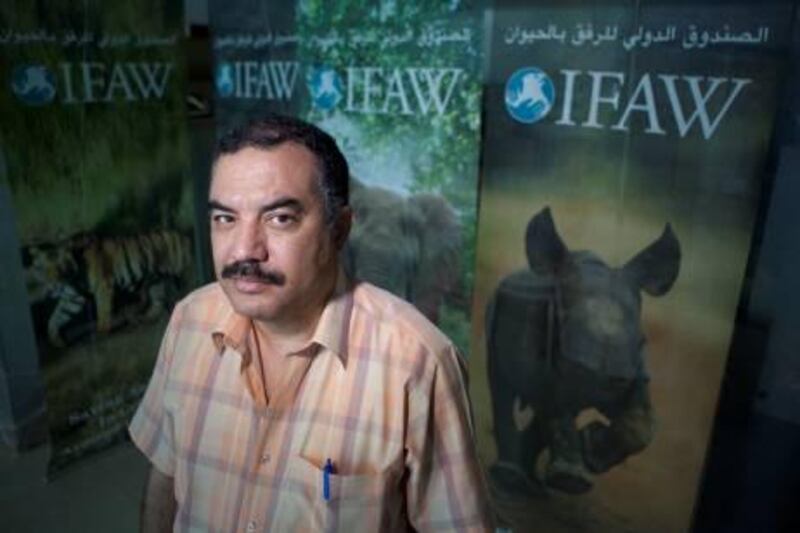DUBAI // Animal welfare experts will return today from a trip to Iraq to teach police and other officials how to protect the country's embattled wildlife.
The human toll of the years of conflict there has been well documented, but animals have also been affected as they have fallen prey to hunters and smugglers who have devastated populations of rare species unchecked amid the turmoil.
Animals are smuggled into neighbouring countries such as Syria, Saudi Arabia and Jordan, and officials believe some end up in the UAE.
Two Dubai-based trainers left for Iraq last Thursday as part of a team from the International Fund for Animal Welfare (IFAW). The group spent seven days in the Kurdistan region, where security is less of an issue than elsewhere in the country.
The training is a key step towards Iraq adopting the Convention on International Trade in Endangered Species (Cites), which regulates the wildlife trade worldwide.
"We have two IFAW trainers from the UAE, one from Syria and one from Jordan.
"We are doing training in the prevention of illegal wildlife trading to encourage Iraq to join Cites," said the team's leader, Dr Elsayed Mohamed, programme manager at IFAW's Dubai office. "Iraqi officials have informed me that the country will become a Cites member this year."
Dr Mohamed, whose office covers the Middle East and North Africa, said many species were smuggled out of Iraq by smugglers who took advantage of the unrest.
"Iraq is one of the countries that has significant wildlife, and because of the unstable situation there are no rules, anyone can do anything. Iraq needs to adopt legislation to control hunting, and should join Cites to prevent smuggling."
Though many types of animal are affected, there is particular concern about the houbara bustard, some types of deer and falcons.
Training is being given to officials from Iraq's environment, agriculture and commerce ministries plus police and customs officers. They are learning about the permits needed to legally trade species listed as endangered by Cites, and the species that are most commonly traded.
In addition, they are receiving practical advice about how to identify threatened species and detect smugglers, and are being shown items made from snakeskin, ivory and other banned materials.






